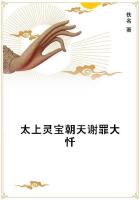He chopped steadily until the tree crashed over, and then, noticing a rapidly filling bucket, he struck the ax in the wood and began gathering sap. When he had made the round, he drove to the camp, filled the kettles, and lighted the fire. While it started he cut and scraped sassafras roots, and made clippings of tag alder, spice brush and white willow into big bundles that were ready to have the bark removed during the night watch, and then cured in the dry-house.
He went home at evening to feed the poultry and replenish the ever-burning fire of the engine and to keep the cabin warm enough that food would not freeze.
With an oilcloth and blankets he returned to camp and throughout the night tended the buckets and boiling sap, and worked or dozed by the fire between times.
Toward the end of boiling, when the sap was becoming thick, it had to be watched with especial care so it would not scorch. But when the kettles were freshly filled the Harvester sat beside them and carefully split tender twigs of willow and slipped off the bark ready to be spread on the trays.
"You are a good tonic," he mused as he worked, "and you go into some of the medicine for rheumatism.
If she ever has it we will give her some of you, and then she will be all right again. Strange that I should be preparing medicinal bark by the sugar camp fire, but I have to make this hay, not while the sun shines, but when the bark is loose, while the sap is rising. Wonder who will use this. Depends largely on where I sell it.
Anyway, I hope it will take the pain out of some poor body. Prices so low now, not worth gathering unless I can kill time on it while waiting for something else.
Never got over seven cents a pound for the best I ever sold, and it takes a heap of these little quills to make a pound when they are dry. That's all of you----about twenty-five cents' worth. But even that is better than doing nothing while I wait, and some one has to keep the doctors supplied with salicin and tannin, so, if I do, other folks needn't bother."
He arose and poured more sap into the kettles as it boiled away and replenished the fire. He nibbled a twig when he began on the spice brush. As he sat on the piled wood, and bent over his work he was an attractive figure. His face shone with health and was bright with anticipation. While he split the tender bark and slipped out the wood he spoke his thoughts slowly:
"The five cents a pound I'll get for you is even less, but I love the fragrance and taste. You don't peel so easy as the willow, but I like to prepare you better, because you will make some miserable little sick child well or you may cool some one's fevered blood. If ever she has a fever, I hope she will take medicine made from my bark, because it will be strong and pure. I've half a notion to set some one else gathering the stuff and tending the plants and spend my time in the little laboratory compounding different combinations. I don't see what bigger thing a man can do than to combine pure, clean, unadulterated roots and barks into medicines that will cool fevers, stop chills, and purify bad blood. The doctors may be all right, but what are they going to do if we men behind the prescription cases don't supply them with unadulterated drugs. Answer me that, Mr. Sapsucker.
Doc says I've done mighty well so far as I have gone. I can't think of a thing on earth I'd rather do, and there's money no end in it. I could get too rich for comfort in short order. I wouldn't be too wealthy to live just the way I do for any consideration. I don't know about her, though. She is lovely, and handsome women usually want beautiful clothing, and a quantity of things that cost no end of money. I may need all Ican get, for her. One never can tell."
He arose to stir the sap and pour more from the barrels to the kettles before he began on the tag alder he had gathered.
"If it is all the same to you, I'll just keep on chewing spice brush while I work," he muttered. "You are entirely too much of an astringent to suit my taste and you bring a cent less a pound. But you are thicker and dry heavier, and you grow in any quantity around the lake and on the marshy places, so I'll make the size of the bundle atone for the price. If I peel you while I wait on the sap I'm that much ahead. I can spread you on drying trays in a few seconds and there you are. Howl your head off, Bel, I don't care what you have found. Iwouldn't shoot anything to-day, unless the cupboard was bare and I was starvation hungry. In that case I think a man comes first, and I'd kill a squirrel or quail in season, but blest if I'd butcher a lot or do it often. Vegetables and bread are better anyway. You peel easier even than the willow. What jolly whistles father used to make!
"There was about twenty cents' worth of spice, and I'll easy raise it to a dollar on this. I'll get a hundred gallons of syrup in the coming two weeks and it will bring one fifty if I boil and strain it carefully and can guarantee it contains no hickory bark and brown sugar.
And it won't! Straight for me or not at all. Pure is the word at Medicine Woods; syrup or drugs it's the same thing. Between times I can fell every tree I'll need for the new cabin, and average a dollar a day besides on spice, alder, and willow, and twice that for sassafras for the Onabasha markets; not to mention the quantities Ican dry this year. Aside from spring tea, they seem to use it for everything. I never yet have had enough.
It goes into half the tonics, anodyne, and stimulants;also soap and candy. I see where I grow rich in spite of myself, and also where my harvest is going to spoil before I can garner it, if I don't step lively and double even more than I am now. Where the cabin is to come in----well it must come if everything else goes.
"The roots can wait and I'll dig them next year and get more and larger pieces. I won't really lose anything, and if she should come before I am ready to start to find her, why then I'll have her home prepared. How long before you begin your house, old fire-fly?" he inquired of a flaming cardinal tilting on a twig.














